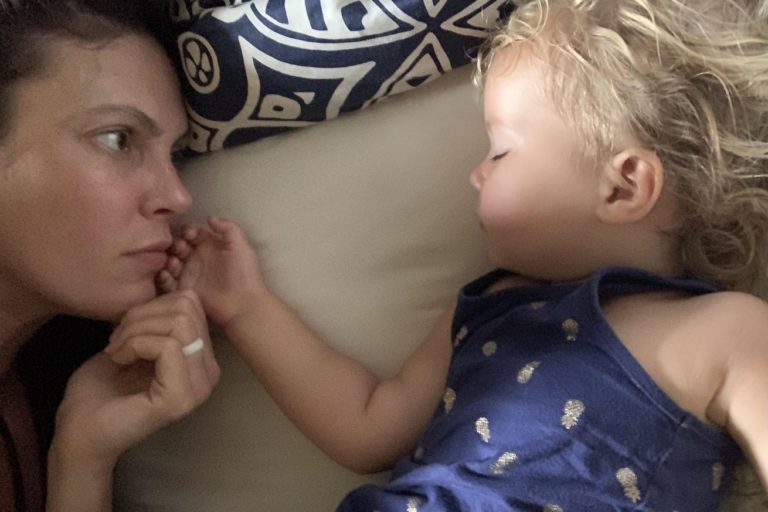

Kendra Stansbury and her daughter – Kendra Stansbury
I have thought a lot about this subject, and I don’t presume to have any answers. It seemed very complicated at first. In some ways it is. When I hear fears about trans women in fighting sports it makes me fear too. Discussions about what is “fair” feel confusing. Yet it’s becoming clearer and clearer to me. I hear the way women’s bodies are being scrutinized, as they always are and always have been. The way they are being told when and how to use them. When it’s ok and when it’s not okay to be who you are.
A female — not trans — Olympic gold winner, Caster Semenya, from South Africa, was told in 2018 that if she wishes to continue to compete in her events she will be forced to take testosterone blockers because her natural testosterone is much higher than most women. I mention her because she is female, but not female enough. Trans women are female, but not female enough. With them both we see an attempt to control and define what and who is a woman, without ever asking the women.
Semenya is also black. I see black women being specifically scrutinized. This is nothing new. The criticism of black women looking “too manly” or “too masculine” or “too muscular” happens among athletes and black women in general. Serena and Venus Williams and Michelle Obama being prime examples (3 examples of beauty and empowerment for many of us). Yes, these criticisms extend to women of all colors — elite Crossfitters and Body Builders, I see you — but these stereotypes of black women are ubiquitous and persistent.
Those dishing out these criticisms are by and large the same people criticizing trans women in sports. The people criticizing trans women in sports are by and large those who do not vote for, or support the laws that would benefit women, the LGBTQ community, or the black community. They say they do. They convince themselves that they do. They do not. The fight against trans women in sports looks like yet another iteration of white supremacy and misogyny, this time disguising itself as a fight for women’s rights. Trans girl athletes are the easy target.
It would make sense to secure the rights, safety, and acceptance of the trans community, then have difficult discussions about their inclusion led by trans people themselves. Instead, their exclusion is being defined by mostly those outside the trans community. How many people righteous in their opinion about trans women in sports have sat down with a trans woman in sports for a discussion? How many are convinced of their views purely because they heard the opinions of another straight or cisgender person who also hasn’t spoken to a trans woman in sports?
Someone close to me recently asked how I would feel if my, currently 3 year old, daughter was someday in competition with a trans girl and she lost out on a scholarship or championship. What would I say to her? How would I explain it? This is my hypothetical letter to her in a very hypothetical situation, based on a hypothetical version of her (I can’t really know what I would need to say, or how I would say it, without knowing her 17 year old self).
Dear Daughter,
I am so sorry. This loss is so disappointing. You worked incredibly hard, and you are undeniably amazing. There are a few important things I want you to remember about today:
1. You will hear people say things about the champion. That she doesn’t deserve it, that she’s not a girl, and worse. She is as much a girl as you are, but to be recognized as one has been a struggle we can never fully understand. We will support and fight for her rights to do everything other girls do.
2. She is very strong, she is very good, and she has worked extremely hard. Others have worked just as hard and haven’t done as well as her, or you. We take what we have been given and do the best we can with it. Striving to be best is integral in sports. She is a girl and she was the best this time. She should never have an asterisk next to her name.
3. A trophy, a title, or scholarship will not make you a good or better person. You already are a good person. What makes you a good and better person is your kindness, your strength in standing up for those who need it, and your gratefulness and awareness of all the amazing things you have in your life and the amazing person that you already are.
4. From our greatest disappointments and losses can come our greatest opportunities. This experience will give you a voice. You can decide how you want to use it. You can choose to tear someone down or lift someone up.
5. Supporting trans girls is supporting girls.
I love you and support you, fully and completely. I am so proud of you. We will grieve this loss, and then we’ll rise to show our strength in kindness.
Love, Mom

Kendra Stansbury and her children